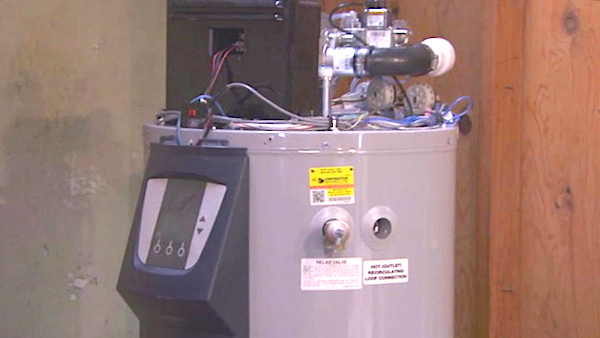Water heater maintenance ensures hot water keeps flowing and helps you avoid cold showers. If neglected, your water heater could break down. It has safety devices that need annual testing to ensure its safety. Water heaters have pressure and temperature valves for discharging water to protect them against excessive temperatures and pressures. The valves should be checked during annual inspections for safety purposes.
Sediment buildup significantly contributes to your water heating system’s inefficiency by settling at your water heater’s bottom, making it hard to generate hot water and lessening the water available for heating. However, regular maintenance ensures your system’s efficiency. Here are five water heater maintenance tips to consider.

1. Schedule an annual water heater inspection
Skimping on water heater maintenance isn’t good because it could render your water heating system inefficient. An annual professional water heater inspection by Williams Comfort Air or other installation and repair experts near you can help prevent significant problems.
This is because the inspection exercise allows you to identify issues before they get out of hand and get them addressed or repaired immediately, ensuring your water heater functions at its peak and reducing water heating costs. If you have a gas heater, the professional inspector ensures it’s adequately ventilated to prevent the risk of carbon monoxide poisoning.
2. Drain the hot water tank
Draining a hot water tank is an excellent way to extend your water heater’s life. This eliminates sediment buildup to ensure your water heater performs more efficiently, reducing water heating costs. If the tank is neglected, the water heater may not last as long, and the heating bills may increase due to slow water heating.
Since sediment and buildup settle at the bottom of the tank, it isn’t necessary to drain the whole water tank each time. You can flush until most of the dirt is flushed out, ensuring a speedy refill process and preventing you from accidentally turning the heater on without water which could damage it.
3. Reduce your water heater temperature
The hotter the water is in your heater, the more the elements inside of it will contract and expand, weakening them and causing them to erode or corrode. This may also increase the possibility of them wearing out quicker. Reducing your water heater’s temperatures ensures that the materials inside won’t expand or contract as much, extending its life and reducing utility bills. It also makes your plumbing last longer.
4. Insulate the water heater tank
Insulating electric water heaters is a cost-effective way of improving energy efficiency and saving you money monthly. Water heater insulation may reduce standby heat losses by 25% to 40% while saving you around 7% to 16% of water heating expenses. An insulation blanket can help reduce heat loss in your gas water heater. However, you should familiarize yourself with the local utility company and code regulations because some may restrict insulation blankets.
5. Replace the water heater filter
When hard water goes into your heater and starts heating up, the scaling minerals usually come out, creating a rock in the heater. This reduces the water heater’s efficiency until it eventually dies. A water heater filter keeps the hard water minerals from coming out. Replacing it regularly ensures your heater functions effectively.
Endnote
Caring for your water heater increases its longevity, enhances its effectiveness, and reduces water heating costs. Consider using these water heater maintenance tips to leverage these benefits.




Join the conversation: